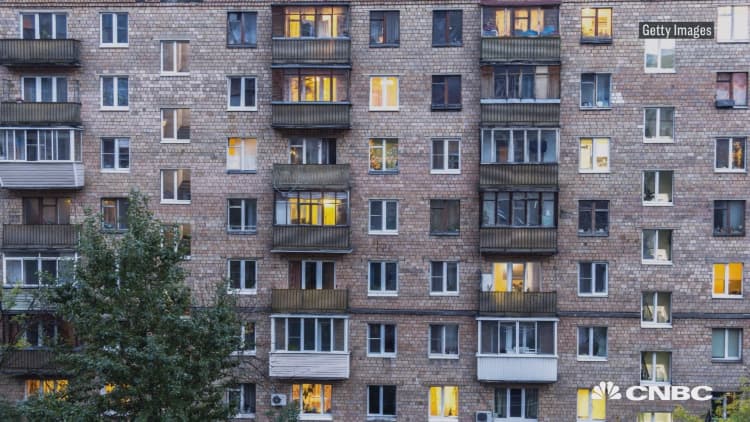
Homeowners are now using rental income earned through Airbnb to refinance their mortgages. It's a pilot program launched just a few weeks ago that took off quickly, and new loans are already closing.
It's another program from mortgage giant Fannie Mae designed to help more borrowers get better loans in today's tight mortgage market. Airbnb already tracks the income data and will now provide documentation for a mortgage application.
"We want to enable those borrowers to be able to refinance and lower their mortgage costs and tap into their housing equity," said Jonathan Lawless, vice president of customer solutions at Fannie Mae.
Partnering initially with three lenders, Better Mortgage, Quicken Loans and Citizens Bank, Fannie Mae allows borrowers to use the rental income as part of the income qualification to refinance their home loans. This helps them either to get a better interest rate or to take cash out for other expenses, like renovations or education.
"Some of the nation's largest financial institutions understand that Airbnb is an economic empowerment tool that can generate important income for families, and they are working to recognize this," wrote Nathan Blecharczyk, Airbnb co-founder and chief strategy officer, in a release.
Borrowers are required to have 12 months history of Airbnb earnings that they can document, and the home must be their primary residence. The program is not for investors using multiple homes only as rental properties.
"Because of the sharing economy, the way people use their homes has changed … and now finally the mortgage industry has caught up," said Vishal Garg, CEO of Better Mortgage. "We are able to use that income in actually underwriting the value of your house, your ability to make a payment on that loan, and then qualify you for a lower rate."
It may be a marriage made in mortgage heaven, or it could add risk to a still-recovering mortgage market.
Since the housing crash, brought on by irresponsibly loose standards in the mortgage market, lenders have been very strict with the amount of debt borrowers can carry compared to their income. They are required, by new regulations that followed the crash, to verify a borrower's ability to repay a loan. Airbnb income can now count in that calculation, allowing borrowers to qualify for bigger loans.
"Absolutely income is a very important part of the mortgage application, and we look for income that's sustainable over time," said Lawless. "But Airbnb earnings, just like any other forms of earnings, have potential risks in the future. We don't see it as any different than any type of job or commission or a bonus type of earning that you recognize."
Better Mortgage's Garg argues that none of the underwriting criteria are changing – the consumer's credit score, the loan to value on the home, "all of that is there." And, he added that the program could actually help some troubled borrowers avert defaulting on their mortgages.
"If consumers encounter some kind of financial hardship, the fact that they've got a stable income source on Airbnb probably means that maybe they could rent out another bedroom on Airbnb and most likely engage in using that to stabilize their income," said Garg.
The home rental-sharing economy is still in its infancy, but given how fast it's growing, it may become harder for individuals to compete for renters. Rental stream that is fast and easy now may not come as easily five years from now. In some local markets, there continues to be regulatory issues limiting these part-time rentals. That, said Lawless, is why this is a small test pilot, although he admitted he already expects it to expand.
"We think that trend seems to be here to stay. And if it changes, of course we'll need to revisit our policies like we always do," he added.


